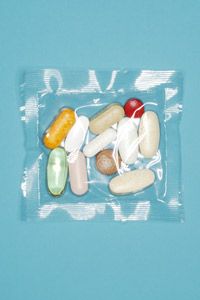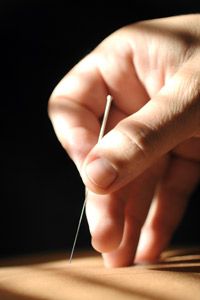Americans spend billions of dollars on alternative medicine each year. Studies show that at least one-in-three people in the United States has used some form of alternative or complementary treatment (not including prayer for health reasons), whether it be dietary supplements for immune health, colonics for digestive health or yoga for heart health [source: AFP].
Since heart disease is the No. 1 killer in the United States, it makes sense that people would seek out every possible therapy to support their heart health [source: CNN]. There are quite a few alternative therapies out there that claim to ward off heart problems like angina, clogged arteries and heart attacks. The coenzyme Q10 and the plant hawthorn, which contains strong flavonoids, are marketed as treatments for congestive heart failure. Garlic, soy, cholestin and various antioxidants, including beta-carotene, vitamins E, C, and B6, and polyphenols (like those in olive oil), have been touted as effective for lowering bad cholesterol and raising good cholesterol. There's the amino acid carnitine for general heart health, chelation therapy for atherosclerosis and yoga and meditation to lower blood pressure.
Advertisement
With so many people using these types of therapies in addition to traditional approaches like exercise, surgery and prescription drugs, there must be something to it. And in many cases, there is -- but like most things in life and medicine, there are pros and cons to stepping outside the box to promote heart health.
In this article, we'll look at some of the top reasons to include alternative therapies in your heart-health regimen, and we'll also see why and under what circumstances you might want to think twice.
One of the biggest benefits of certain alternative treatments is the way many of them focus on the mind-body connection, which can easily be neglected in a fast-paced life. So, up first, stress reduction.





